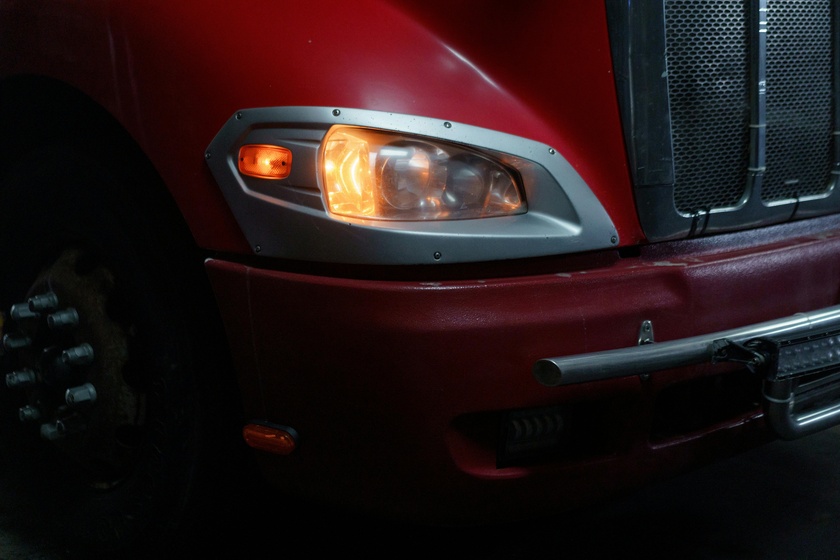
Being involved in a truck accident can be a traumatic and overwhelming experience. Due to the size and weight of commercial trucks, these accidents often result in severe injuries, significant property damage, and even fatalities. If you have been injured in a truck crash, it is crucial to take immediate steps to protect your health, legal rights, and potential compensation. This guide outlines the essential actions to take after a truck accident to help ensure your recovery and safeguard your claim.
Immediate Steps to Take at the Scene
1. Call 911 and Seek Medical Assistance
The first and most critical step after a truck accident is to call 911. Truck accidents often cause catastrophic injuries, so emergency responders need to be on the scene as soon as possible. Even if you feel fine, seeking medical attention is vital, as some injuries may not be immediately apparent.
2. Move to a Safe Location
If possible, move away from oncoming traffic to avoid further danger. However, if you are seriously injured, it is best to remain where you are and wait for emergency personnel to arrive.
3. Document the Accident Scene
Gathering evidence at the accident scene can strengthen your case. If you are physically able, take the following steps:
Take photos and videos of the vehicles, road conditions, traffic signals, and any visible injuries.
Record the truck’s license plate, company name, and USDOT number, which can be found on the side of the truck.
Note the contact information of any witnesses who may provide statements later.
4. Exchange Information
Obtain the truck driver’s details, including their name, contact information, insurance provider, and employer details. Also, ask for the responding officer’s name and badge number to retrieve the police report later.
Seeking Medical Attention and Documentation
5. Get a Thorough Medical Evaluation
Even if you received medical treatment at the scene, schedule a follow-up examination with a doctor as soon as possible. Some injuries, such as traumatic brain injuries or internal bleeding, may not show symptoms immediately. A thorough medical evaluation creates a record that links your injuries to the accident, which is essential for your claim.
6. Keep All Medical Records and Bills
Maintain a file containing all medical documents, including diagnosis reports, prescriptions, treatment plans, and medical bills. These records are crucial for proving the extent of your injuries and securing compensation for your medical expenses.
Reporting the Accident
7. Obtain the Police Report
A police report serves as an official record of the crash and often includes vital information about fault and contributing factors. You can request a copy of the report from the law enforcement agency that responded to the accident.
8. Report the Crash to Your Insurance Company
Notify your insurance provider about the accident as soon as possible. Provide factual details but avoid admitting fault or speculating about what happened. Insurance adjusters may use your statements against you to minimize your claim.
9. Understand Federal Trucking Regulations
The trucking industry is regulated by the Federal Motor Carrier Safety Administration (FMCSA), which enforces safety regulations, including hours of service, vehicle maintenance, and driver qualifications. Understanding these regulations can help determine if the truck driver or trucking company violated any rules, potentially strengthening your case.
Legal Considerations and Filing a Claim
10. Consult a Truck Accident Attorney
Truck accident claims are more complex than regular car accident cases because they often involve multiple liable parties, such as the truck driver, trucking company, vehicle manufacturer, or cargo loaders. Seeking legal representation from an experienced attorney can help you navigate the complexities of your claim and maximize your compensation.
11. Determine Liability
To successfully pursue a claim, it is necessary to establish liability. Potentially responsible parties may include:
The truck driver (if negligence, such as distracted driving or fatigue, played a role).
The trucking company (if they failed to follow safety regulations or overworked their drivers).
The manufacturer (if defective truck parts contributed to the accident).
A third-party maintenance provider (if improper repairs or inspections were a factor).
12. Preserve Evidence for Your Case
Evidence plays a critical role in proving liability and damages. Your attorney may gather and analyze:
The truck’s electronic logging device (ELD) and black box data.
Truck driver logs and employer records.
Maintenance and inspection reports.
Traffic camera footage and accident reconstruction reports.
Dealing With Insurance Companies
13. Be Cautious With Insurance Adjusters
Insurance adjusters may try to settle your claim quickly for a lower amount. Avoid signing any documents or providing recorded statements without consulting an attorney.
14. Calculate Your Damages
Your claim should cover both economic and non-economic damages, including:
Medical expenses (current and future).
Lost wages and reduced earning capacity.
Pain and suffering.
Property damage.
15. Negotiate for Fair Compensation
An experienced lawyer can handle negotiations with insurance companies and ensure you receive fair compensation. If a settlement is not reached, your attorney can represent you in court.
Protecting Your Future After a Truck Crash
Recovering from a truck accident can be a long and challenging process. However, taking the right steps immediately after the crash can significantly impact the outcome of your case. Whether you are dealing with medical expenses, lost income, or emotional trauma, having the right legal support is crucial. If you or a loved one has been injured in a truck crash, seeking guidance from a J&Y Law truck accident lawyer can help you understand your rights and pursue the compensation you deserve.
Additionally, finding a reputable law firm with experience in handling truck accident claims can make a significant difference in your case. For more information about legal services, you can explore options through this legal directory.
By staying informed, documenting your injuries and damages, and seeking legal assistance, you can take the necessary steps to rebuild your life after a truck accident.



















